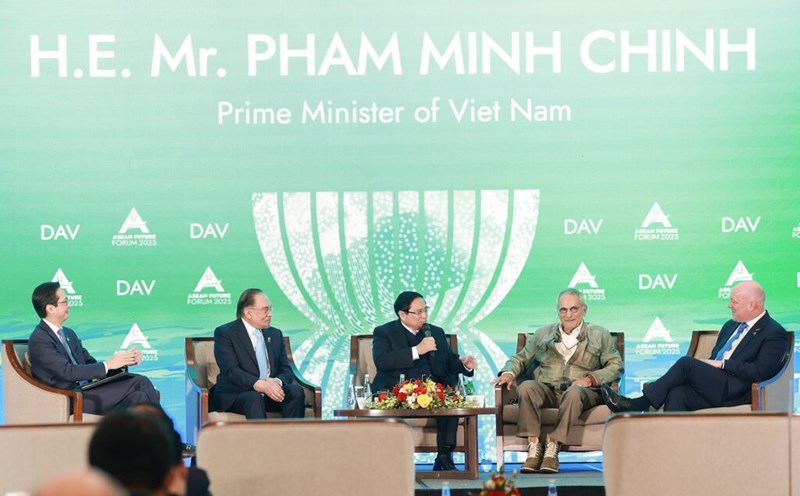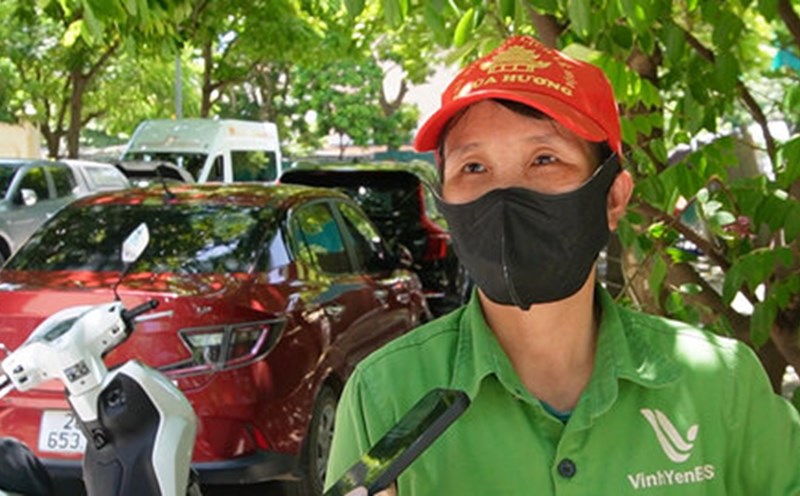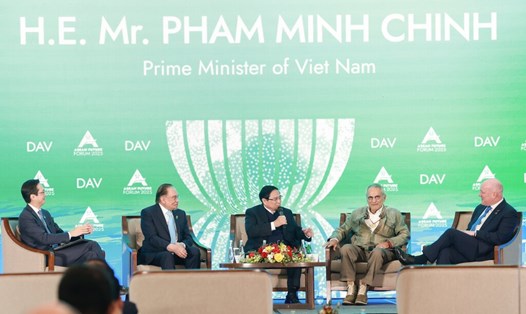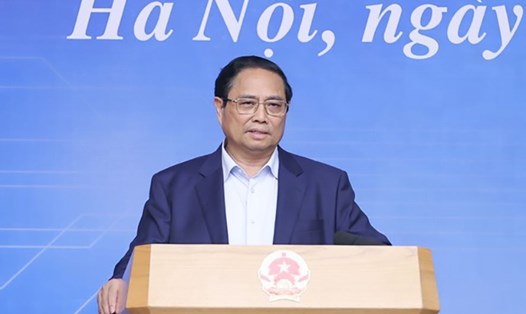On August 4, Politburo member and Prime Minister Pham Minh Chinh chaired the 2nd meeting of the National Steering Committee on Semiconductor Industry Development.
According to the report, human resources are being developed in the direction of ensuring that by 2030, there will be at least 50,000 semiconductor engineers.
Regarding infrastructure development, CT Group has started expanding the chip factory owned and operated by Vietnamese people, aiming to produce 100 million chips/year by 2027.
The R&D ecosystem and international standard clean room systems are being built and expanded in major cities, such as SHTP Labs in Ho Chi Minh City High-Tech Park (investment capital of 300 billion VND), laboratories at Hanoi National University (5 million USD)...
Concluding on the development direction in the coming time, Prime Minister Pham Minh Chinh emphasized the goal of designing, manufacturing and testing a number of necessary semiconductor chips by 2027 at the latest.
Pointing out key groups of tasks and solutions, and at the same time important guiding viewpoints, the Prime Minister affirmed that we must go from low to high, from small to large, from simple to complex, but must accelerate, break through, make breakthroughs, catch up, progress together and overcome.
"To develop the semiconductor industry, the whole country must be a team; towards the goal of being proactive and bold; fighting in battle must be a big hit, a quick hit, a solid hit to win; the effectiveness must be sustainable and long-term," the Prime Minister emphasized.
The head of the Government also emphasized the development of an inclusive, synchronous, substantial and efficient semiconductor ecosystem. Complete mechanisms and policies, especially preferential mechanisms and policies, remove bottlenecks in infrastructure, institutions, and people with the spirit of open institutions, smooth infrastructure, people and smart implementation.
Change the status of preferential policies from attracting investment to transferring technology. Closely and effectively coordinate between the State, businesses and schools, between creativity, development, research and production.
Develop equality between the public and private sectors, build a public-private partnership mechanism, and further expand international cooperation. Develop a competitive, healthy, equal and compelling semiconductor chip market.
Regarding some specific tasks, the Prime Minister requested to continue focusing on promoting foreign investment attraction in the semiconductor sector, prioritizing projects with advanced technology, new technology, high technology, clean technology, modern governance, high added value, and impact, connecting global production and supply chains.
In 2025, submit to the Prime Minister to issue a decision on credit for students, students, master's students, and biomedical research students in the fields of science, technology, engineering and mathematics.
The Ministry of Education and Training closely follows the implementation of tasks on organizing training in the human resource development program for the Vietnamese semiconductor industry until 2030, with a vision to 2050, in which it directs the promotion of the model of linkage between the state, schools, and enterprises in training human resources for the semiconductor industry to ensure efficiency and quality.
The Ministry of Industry and Trade urgently proposes to amend regulations on direct electricity trading in the direction of creating more convenience, openness, and competitiveness; ensuring adequate electricity supply in the direction of clean electricity. Chair and coordinate with the Ministry of Foreign Affairs to urge the US side to soon remove Vietnam from the list of strategic export controls.











